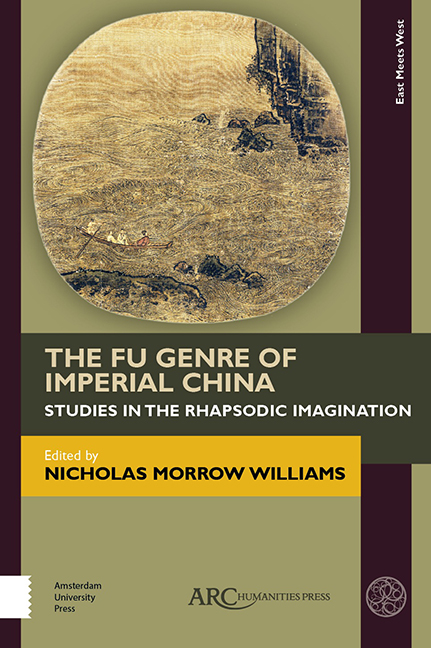3 - Into the New Realm of Belles Lettres: Intersections of Sevens and Song Verses in Jian’an Poetry
Published online by Cambridge University Press: 20 November 2020
Summary
THE FU HAS long been considered a genre of belles lettres or meili zhi wen 美麗之文. The tension between beauty and its role in moral suasion also has long been observed. For instance, during the Jian’an 建安 period (196– 220), the poet Xu Gan 徐幹 (171– 218) decided to cease writing any form of belles lettres, including the shi, fu, eulogy, inscription, or encomium genres. He did so in addition to abandoning his position at Cao Cao's 曹操 (155– 220) court. Although he excused himself on the ground of illness, Xu Gan's real motivation may have had more to do with his criticism of the elegant writing of the time for contributing nothing to moral teachings.
Xu Gan's rejection of fu seemed to echo Yang Xiong's 揚雄 (53 BCE– 18 CE) same claim two centuries earlier. “I believe that the fu is for the purpose of suasion,” writes Yang Xiong in his autobiography. After enjoying all the ornate and lavish language characteristic of the fu, however, “the reader has already missed the rectifying message.” His Fa yan 法言 (Exemplary sayings) reports that the beautiful language of fu was compared favourably to the “weave of misty gossamer” (wuhu zhi zu 霧縠之組), but Yang Xiong found such language destructive and compared it to a “borer worm in a seamstress's work” (nügong zhi du 女工之蠹).
The difference between Yang Xiong and Xu Gan is that Yang Xiong only rejected the fu. To Yang Xiong, shi poetry refers to the Shijing. To return to the classical norm of selfrestraint, one should follow the shi poets instead of the present fu poets. In the official catalogue, “Yiwen zhi” 藝文志 of the Han shu, the shi and the fu also make a contrast: the catalogue of the shi is much shorter than that of the fu. It was exclusively a collection of court and regional geshi 歌詩or “song verses,” more commonly known today as yuefu poems. The music to these pieces has long been lost, but some of the lyrics are extant, mostly preserved in the Song shu and the Yuefu shiji.
- Type
- Chapter
- Information
- The Fu Genre of Imperial ChinaStudies in the Rhapsodic Imagination, pp. 39 - 60Publisher: Amsterdam University PressPrint publication year: 2019



